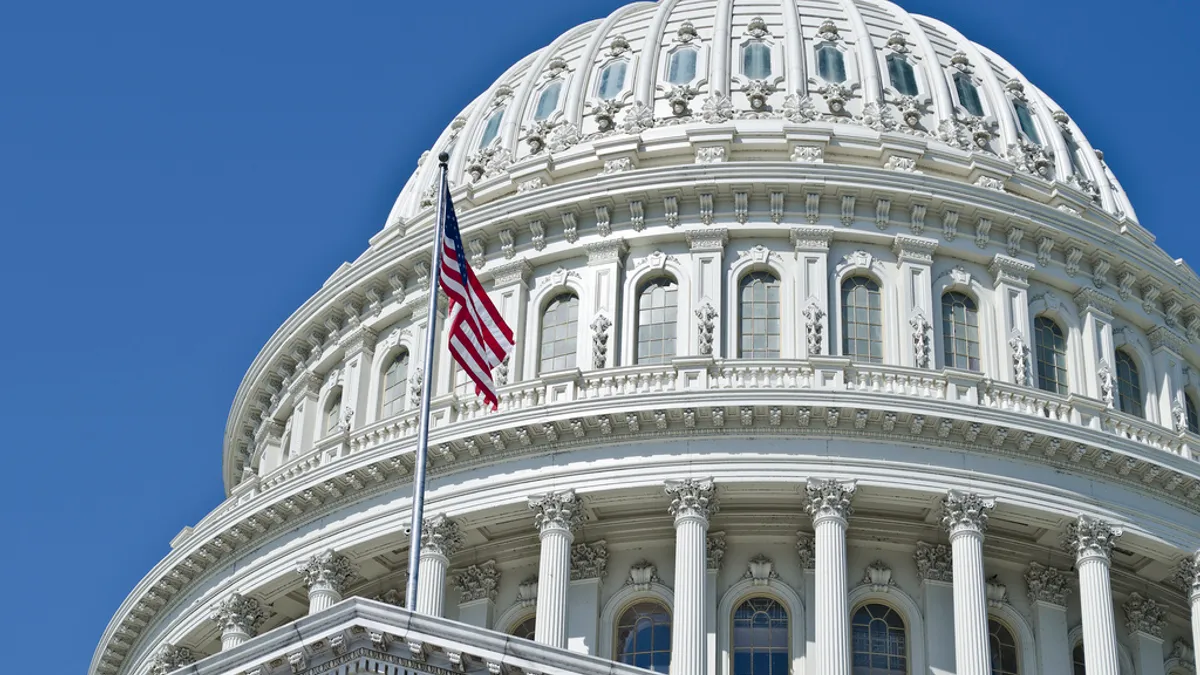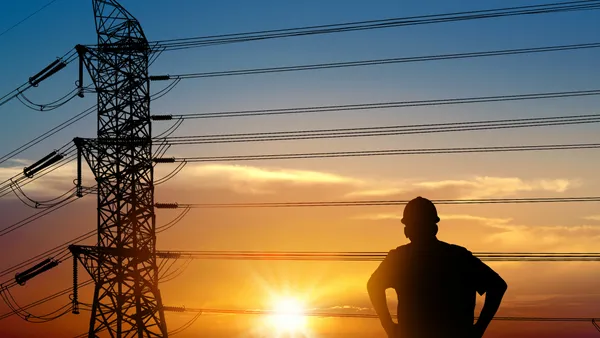Dive Brief:
- Critics of the U.S. Environmental Protection Agency's plan to regulate carbon told a House subcommittee Monday that the new standards will drive up power prices, and that rules are needed to stave off major mandates before the law is fully litigated.
- A Republican House member has proposed a bill to allow states to delay implementation until a full judicial review has been completed.
- Opponents of the measure say it would likely mean never-ending litigation surrounding the Obama administration's Clean Power Plan.
Dive Insight:
Though President Barack Obama would likely veto the measure if passed, a House subcommittee this week heard testimony on the Ratepayer Protection Act, proposed by Rep. Ed Whitfield (R-Ky.).
Whitfield, who chairs the Energy and Power Subcommittee, said the proposal would provide solutions to legal and implementation problems.
“I am convinced that this proposed rule is on very shaky legal ground and may end up being remanded or even vacated by the federal courts," he said in a statement. "I am also concerned that implementation of this rule risks serious economic harm that states would be prohibited from addressing."
Eugene Trisko, an energy economist and attorney in private practice representing the American Coalition for Clean Coal Electricity, delivered testimony that the Clean Power Plan will drive up energy prices and disproportionately hurt lower income families.
According to Trisko's testimony, average power prices would be 15% higher under the CPP, and as much as 22% more in some years.
"Senior citizens and other lower-income groups will bear the burden of higher energy costs imposed by EPA’s Clean Power Plan, but will be among the least likely to invest in – or benefit from - the energy efficiency programs that the proposed rule envisions," he said in prepared testimony.
Not all parties see the CPP that way, of course.
Janet McCabe, in the EPA's Office of Air and Radiation, said that while the Administration does not have an official position on the bill, EPA views the measure as "premature, unnecessary and ultimately harmful."
"Under the proposal states may act together through regional or multi-state plans, an option that can further reduce costs," McCabe said in her testimony. "We believe that this option allows states to develop strategies that are more in line with existing interstate power markets, taking maximum advantage of the sector’s interconnected nature to maintain reliability and affordability while achieving emission reductions."















